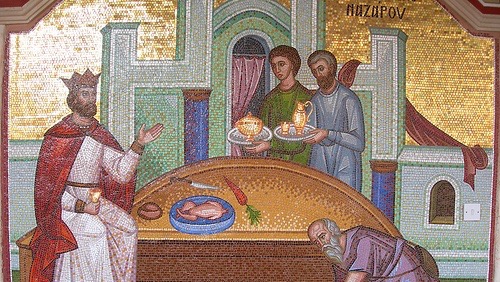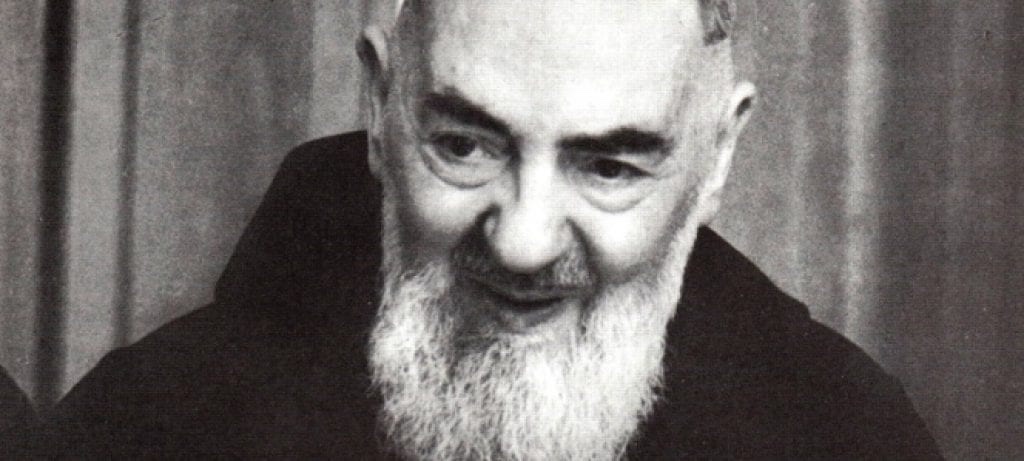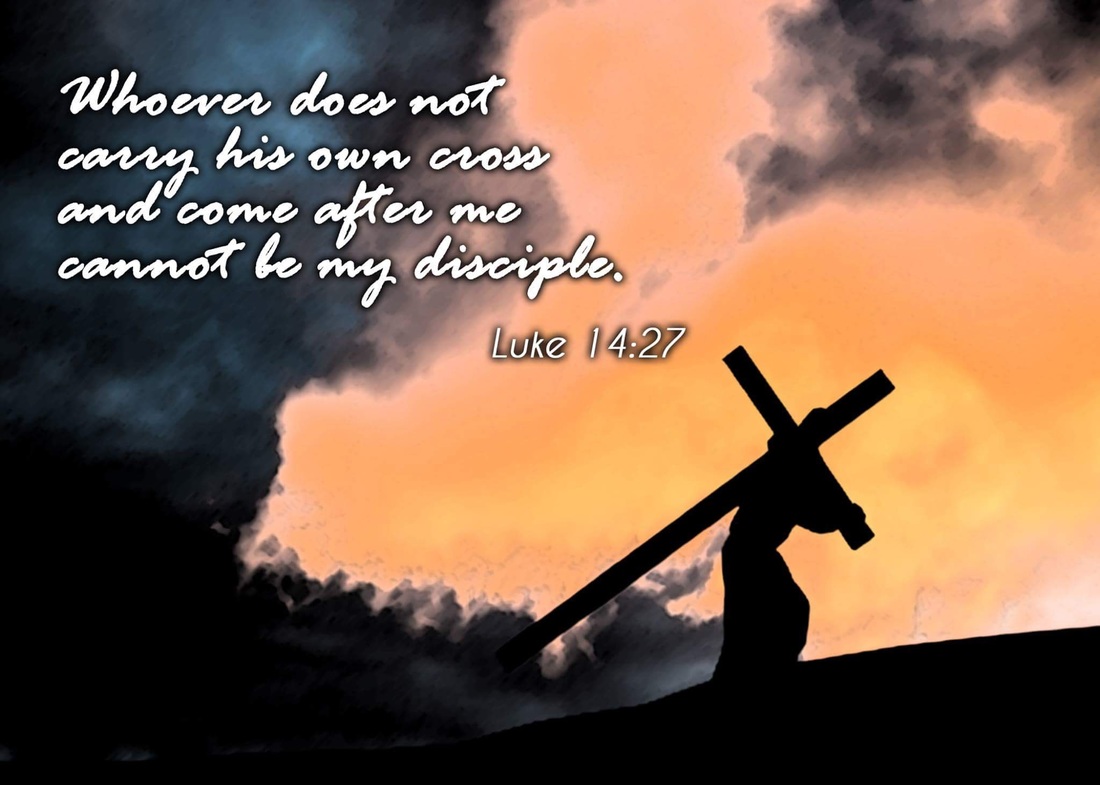The past two weekends, we have had the first reading come from the book of the prophet Amos. I love Amos. He doesn’t mince words, and you can usually tell what he’s getting at right away. Today, though, I think it’s a little harder to understand what he means. The line that jumps out at me is the line, “Improvising to the music of the harp, like David, they devise their own accompaniment.” It almost sounds like a good thing. David, of course, was known to be a wonderful musician, so it seems like a good thing that they are able to devise their own accompaniments, right?
But listen to that line again: “Improvising to the music of the harp, like David, they devise their own accompaniment.” Again, it almost sounds like a good thing, but it isn’t at all. David could devise his own accompaniment, because he was singing those Psalms with the voice of God. But if everyone in our choir devised their own accompaniment, we’d have a cacophony. So here Amos is making the point that devising their own accompaniment meant that they listened to what they wanted to hear, they sang the song they wanted to sing, without any thought as to what was right. They did whatever they wanted to do, because it seemed like God was blessing them. It’s kind of like the expression, “she dances to her own music.” It’s not a compliment at all.
The rich man in today’s Gospel devised his own accompaniment too. He ignored poor Lazarus every single day of his life. He knew Lazarus’s need, and maybe he even thought he’d get around to helping Lazarus one day. Or maybe he thought, “What good can I do, I’m just one person?” Perhaps he thought, “If I give him something to eat, he’ll just be coming around looking for something to eat tomorrow.” He probably came up with all kinds of excuses about why he couldn’t help Lazarus right here and right now. He was devising his own accompaniment.
And we all know the story about the rich man. Someday becomes never. It’s eventually too late: poor Lazarus dies and goes to be with Father Abraham. But in an ironic twist of fate, the rich man also dies, and it seems like right around the same time. But it seems that Lazarus and the rich man end up in different places, doesn’t it? The rich man learns that devising one’s own accompaniment does not help one to sing a hymn of praise to the Lord, and his choice in life becomes his choice in the life to come. If one doesn’t choose to praise God in life, one won’t have that option in the life to come. Devising our own accompaniment comes with drastic consequences.
Even in death, the rich man is devising his own accompaniment. Even now, he does not see Lazarus as anything more than a messenger to do his own bidding. “Father Abraham,” he cries out, “have pity on me. Send Lazarus to dip the tip of his finger in water and cool my tongue, for I am suffering torment in these flames.” When he learns that’s not possible, he tries another tack: “Then I beg you, father, send him to my father’s house, for I have five brothers, so that he may warn them, lest they too come to this place of torment.” He never sees Lazarus as a brother, and that’s why they’re in different places. That’s why there is that great chasm that Father Abraham talked about between them – the rich man built it himself! Devising our own accompaniment means that we separate ourselves from the community, we literally excommunicate ourselves.
One of the principles of Catholic social teaching is solidarity with the poor and needy. This was a topic that the prophets, like Amos, preached about all the time. Solidarity with the poor is the teaching that says we need to be one with our brothers and sisters, and not ignore their presence among us. I became very aware of this as I walked around downtown Chicago one time. I had come with some money to give to the poor. But on the train ride home, I realized that I had just quickly given some of them some money, and never really looked at any of them. They were my brothers and sisters, and I didn’t take the time to look them in the eye. Solidarity calls me – calls all of us – to do just that. We have to step out of that universe that we have set in motion around us and realize that Christ is present in each person God puts in our path, particularly and especially in the person who is in need. We have to step out of our own cacophony where we have devised our own accompaniments and step into the symphony that God has set in motion.
God knows about this principle of solidarity. Because God holds it so dear, he sent his only Son to take on flesh – our flesh – so that he could live in solidarity with us – all of us who are poor and needy in our sins. He shared in all of our joys and sorrows, and reaffirmed that human life was good. Life was made good at creation and remains good to this day. But if God could take on flesh in solidarity with us, then we must take on the burdens of our brothers and sisters and live in solidarity with them. We must abandon our own accompaniments and sing the song of our brothers and sisters in need.
In our second reading today, St. Paul tells us to “pursue righteousness, devotion, faith, love, patience, and gentleness. Compete well for the faith. Lay hold of eternal life, to which you were called when you made the noble confession in the presence of many witnesses.” We have to be serious about living our faith and proclaiming the Gospel in everything that we do. In solidarity with all of our brothers and sisters, we must sing to God’s own accompaniment and join in the wonderful symphony that is the heavenly worship.







You must be logged in to post a comment.